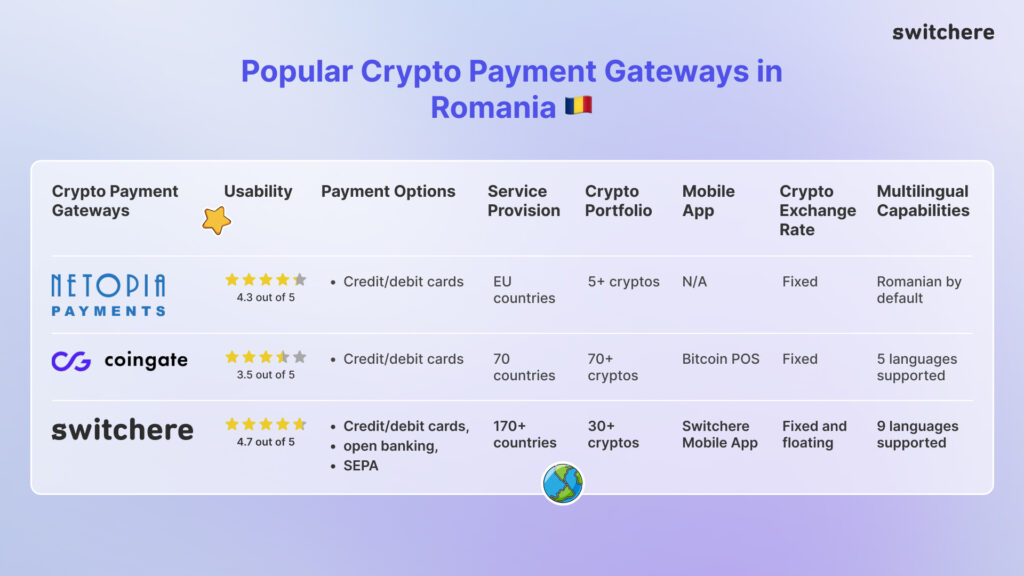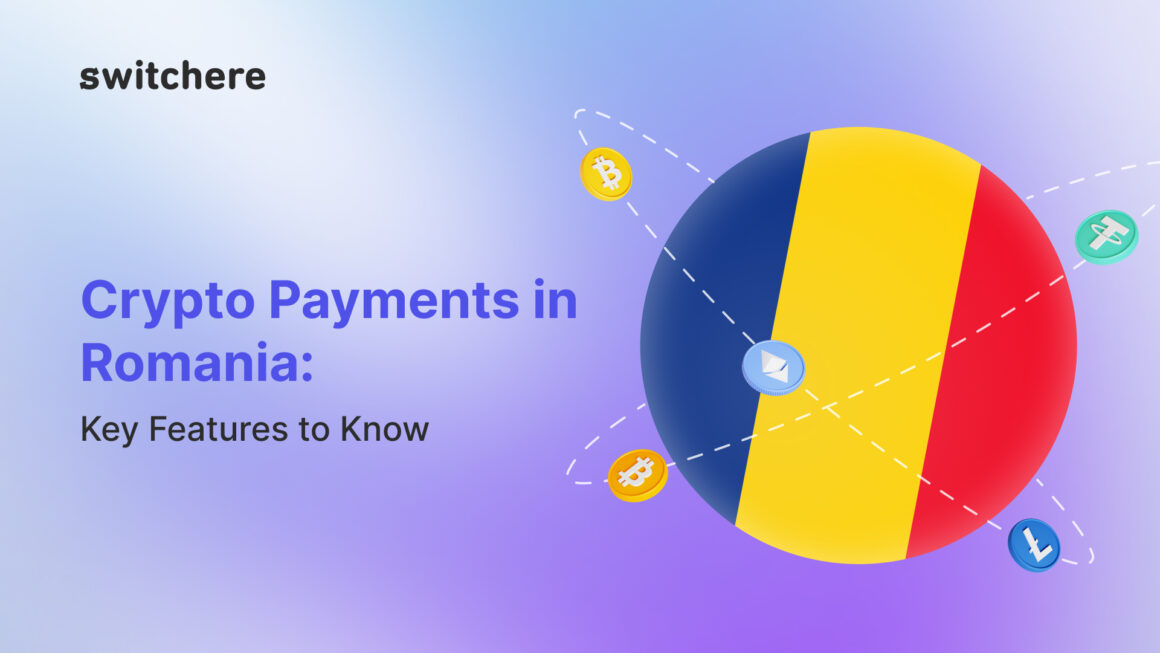Cryptocurrencies have emerged as a global phenomenon, challenging traditional financial systems and offering new avenues for transactions. Romania, like many other nations, has witnessed a growing interest in cryptocurrencies and their prospective applications. This article delves into the current status of cryptocurrencies and crypto payments in Romania, examining the judicial framework governing these digital assets and available virtual currency payment gateways.
Legal and Regulatory Landscape
At the date of writing, Romania has taken a cautious yet evolving approach toward regulating cryptocurrencies. The country does not have specific legislation dedicated exclusively to cryptocurrencies, but existing financial regulatory norms are applicable to a large extent. The National Bank of Romania (BNR) and the Financial Supervisory Authority (ASF) have been at the forefront of governing and regulating digital asset-related activities.
In 2019, the BNR issued a public warning regarding potential risks peculiar to virtual currencies. However, the authorities did not impose an outright ban on the use or trading of virtual currencies. Instead, the focus has been on enhancing consumer awareness and encouraging responsible use.
Virtual Currency Licensing Prerequisites for Business Entities
Noteworthy, Romania has not imposed any concrete licensing obligations for business entities involved in virtual currency-related activities. However, companies dealing with cryptocurrencies are obligated to comply with the existing financial regulations within the country. It’s crucial for businesses involved in cryptocurrency activities to stay updated on regulatory changes.
Popular Crypto Payment Gateways in Romania
Crypto payment gateways have gained traction globally as businesses seek to diversify payment options. In Romania, the integration of crypto payment gateways has been relatively slow compared to other European countries. However, a few forward-thinking businesses have started accepting cryptocurrencies as a form of payment.
The deficit of specific regulations regarding crypto payments creates both the right set of positive circumstances and certain challenges for business entities. More specifically, the absence of stringent state regulations allows for innovation and flexibility. Conversely, it may deter some businesses from adopting crypto payments due to uncertainties about legal implications. Below, you may find a selection of popular crypto payment gateways rendering their services in Romania and other EU countries.

Switchere
One can hardly argue the key benefits offered by Switchere. Most importantly, it is a perfectly licensed virtual currency exchange and wallet provider that renders its services in 170+ jurisdictions. Notably, the Switchere services are available for persons and businesses alike (fiat on and off ramps).
Switchere is a full-featured fintech company with its own token listing launchpad, plug-and-play NFT checkout and wide selection of cryptocurrencies for sale and purchase operations via conventional bank cards, SEPA bank transfers, instantaneous crypto-to-crypto swaps, etc. Even more, a handy Switchere mobile app grants limitless access to all crypto exchange services — just like a pocket-size crypto manager in the palm of one’s hand.
Further Prospectives
The regulatory canvas for virtual assets in Romania is likely to evolve as the industry matures and gains wider acceptance. In June 2021, Romania’s Finance Minister announced plans to regulate cryptocurrency issuance and implementation, signalling a potential shift towards a more defined legal framework.
Final Thoughts
Romania stands at a crossroads in its approach to cryptocurrencies, weighing all the pros and cons connected with fintech innovation and the importance of client data protection. The cautious yet open-minded approach of Romanian authorities suggests momentum for the gradual introduction of virtual currencies (BTC, DeFi tokens, stablecoins, etc.) into the mainstream financial ecosystem, offering new opportunities for seasoned traders, business entities and institutional investors alike. Businesses and consumers alike can benefit from the convenience, security, and flexibility offered by qualified crypto-oriented platforms.
